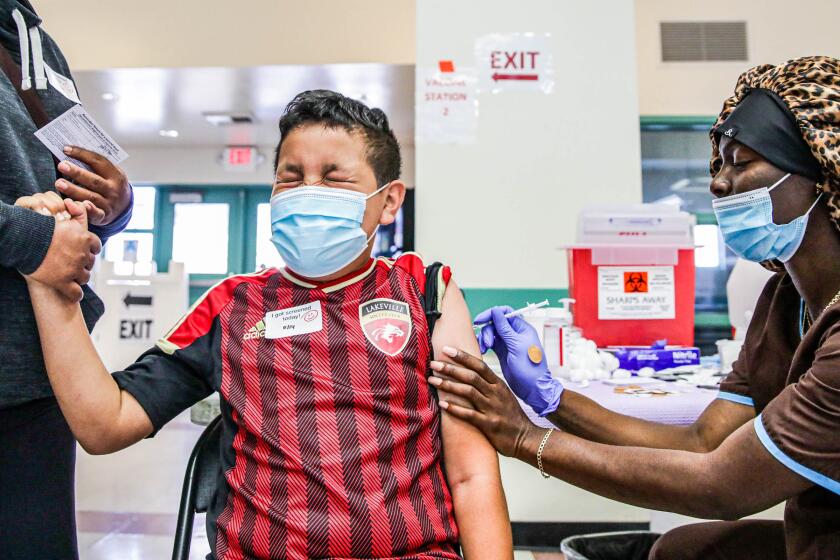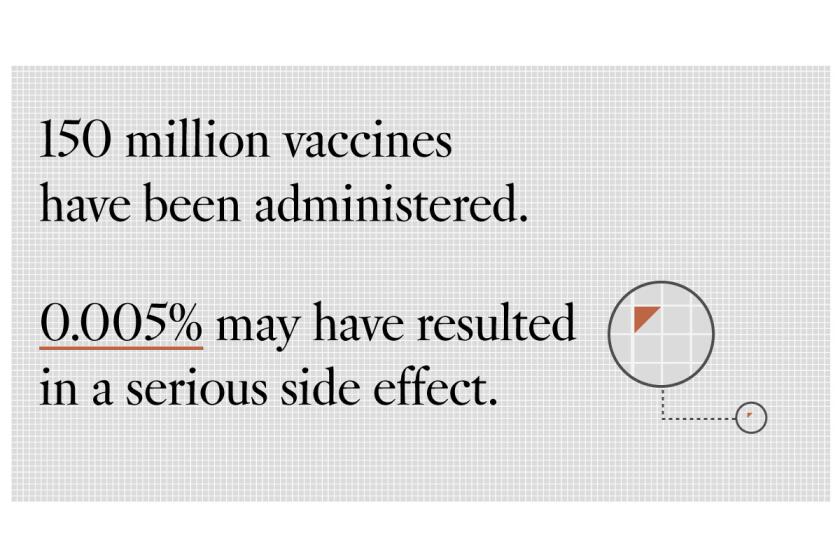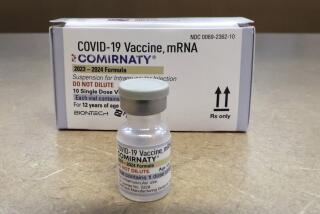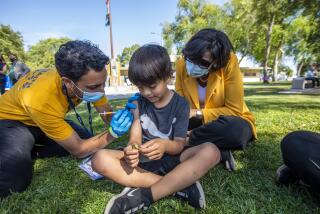Health officials tout COVID vaccines after reports of heart risks
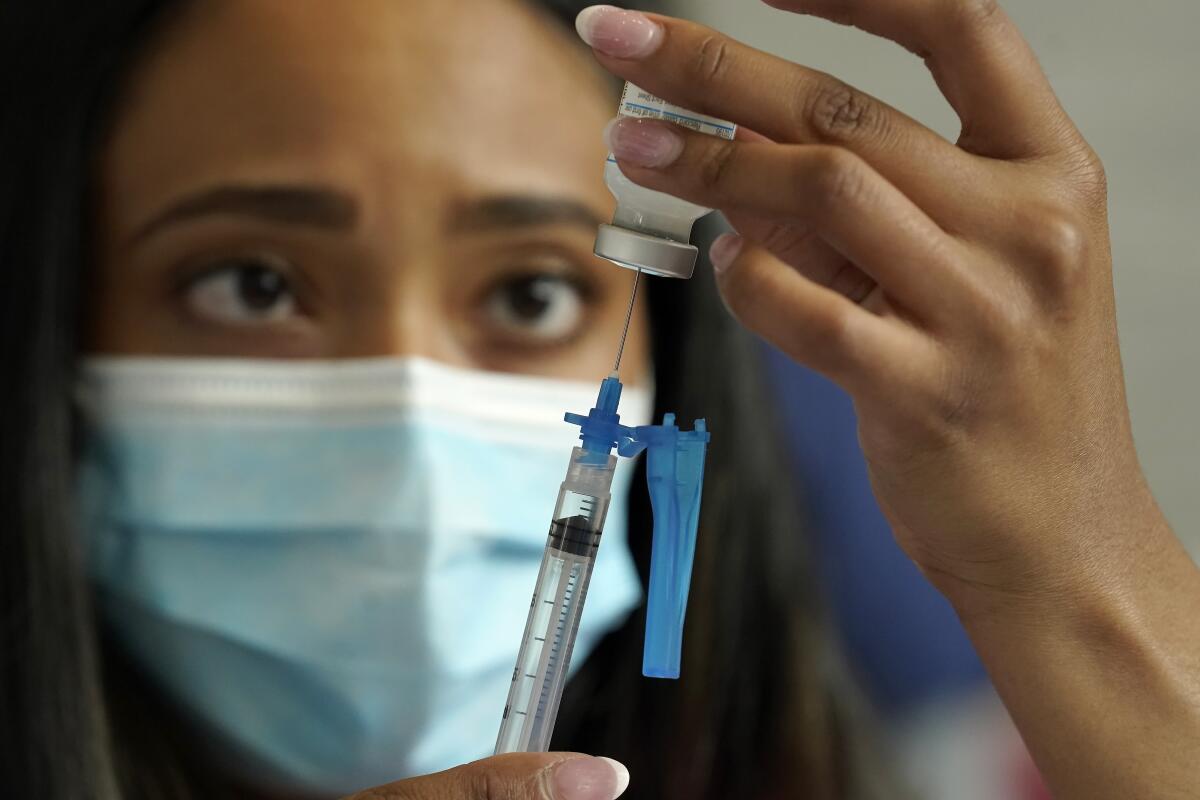
- Share via
Federal officials said Wednesday they plan to strengthen cautions about a rare side effect of some COVID-19 vaccines — chest pain and heart inflammation, mostly among teenagers and young adults.
But in an unusual joint statement, top U.S. government health officials, medical organizations, laboratory and hospital associations and others stressed the overriding benefit of the vaccines.
“The facts are clear: this is an extremely rare side effect, and only an exceedingly small number of people will experience it after vaccination. Importantly, for the young people who do, most cases are mild, and individuals recover often on their own or with minimal treatment,” the statement said.
There does seem to be a link between the Pfizer-BioNTech and Moderna shots and some cases of heart inflammation, experts said at a meeting Wednesday of an expert panel that advises the Centers for Disease Control and Prevention on vaccinations.
The problem appears to be most common in young men after they receive their second of two doses, but it is rare overall: There have been 323 confirmed reports of the inflammation in people younger than 30, and the vast majority recovered from their symptoms.
That risk “seems to me, and to many others, to be much lower than the risk of COVID,” said Dr. Brian Feingold, a University of Pittsburgh heart specialist who is not a member of the panel.
A growing contingent of medical experts is questioning the conventional wisdom that healthy children should get COVID-19 shots as soon as possible.
More than 130 million Americans have been fully vaccinated with one of the two vaccines, both of which are made using mRNA technology. Despite their widespread use, there have been few reports of serious adverse effects.
Data presented to the Advisory Committee on Immunization Practices on Wednesday show that for those ages 12 to 39, there’s only a 0.00126% risk of developing heart inflammation within 21 days of getting their second dose of COVID-19 vaccine.
“We’re observing this in younger age groups, mainly teens and early 20s,” Dr. Tom Shimabukuro, deputy director of the CDC’s Immunization Safety Office, said at the ACIP meeting. “This largely disappears when you get to older age groups.”
Other conditions related to COVID-19 pose a greater threat, ACIP members said. More than 4,000 youths have suffered a dangerous condition called multisystem inflammatory syndrome in children, or MIS-C, that appears to be linked to the coronavirus. COVID-19 itself also can cause heart inflammation.
There have been nearly 2,800 COVID-19 deaths among adolescents and young adults.
In May, the Pfizer-BioNTech shot was cleared for emergency use in people as young as 12 after earlier being authorized for those 16 and older. About 20% of adolescents ages 12 to 15 are now fully vaccinated, according to the CDC.
The advisory committee did not vote to change its recommendation to the CDC that Americans as young as 12 get the shots.
Questions about COVID-19 vaccines’ safety have led to hesitancy for some Americans. Experts say there is almost zero cause for concern.
CDC officials said Wednesday that they plan to update their guidance to say that anyone who suffers the heart inflammation after one dose of the vaccine can defer a second shot.
Meanwhile, the Food and Drug Administration is planning to put together a product warning that notes the risk.
The heightened concern about possible cardiovascular side effects could threaten vaccine uptake among young adults and adolescents. The immunization push in the U.S. has been slowing in recent weeks, and potentially dangerous variants have begun to flourish in some areas where vaccination rates remain low.
CDC Director Dr. Rochelle Walensky said Wednesday that mRNA vaccines have been successful in preventing severe illness and death among young people.
Speaking at the Milken Institute Future of Health Summit, Walensky added that the data presented at the advisory committee meeting will “overwhelmingly demonstrate that the benefits of vaccination far outweigh the risks.”
Bloomberg News was used in compiling this report.
